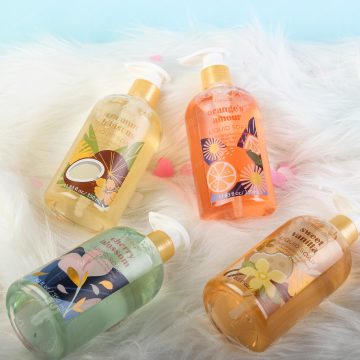Myth 1: Bar Soap Is Dirty and Spreads Germs: This myth suggests that bar soap accumulates germs and bacteria from repeated use, leading to potential infections. While it’s true that bar soap can harbor germs, studies have shown that the risk of contracting infections from using bar soap is minimal. Proper use and storage, such as allowing the soap to dry between uses, can mitigate this risk.
Myth 2: Liquid Soap Is Always Antibacterial: Not all liquid soaps are antibacterial. While some liquid soaps contain antibacterial agents like triclosan or triclocarban, many natural and non-antibacterial liquid soaps are effective at removing dirt and germs through regular handwashing. Antibacterial soap isn’t necessarily superior to regular soap for everyday use and might contribute to antibiotic resistance.
Myth 3: All Liquid Soaps Are Chemical-Free: While some liquid soaps market themselves as “chemical-free,” it’s important to note that all substances are made up of chemicals. Instead, focus on looking for natural, plant-based ingredients and avoiding synthetic additives if you’re seeking a more natural product.
Myth 4: More Bubbles Mean Better Cleaning: The amount of lather or bubbles a soap produces doesn’t necessarily indicate its cleaning effectiveness. Many natural liquid soaps might produce fewer bubbles but are still effective at cleaning.
Myth 5: Natural Soaps Don’t Require Preservatives: Natural liquid soaps can contain water, which provides an environment for the growth of bacteria and mold. Some natural liquid soaps do require mild, natural preservatives to prevent spoilage and maintain safety.
Myth 6: Using Antibacterial Soap Is Always Better: Using antibacterial soap isn’t always better than using regular soap. In fact, overuse of antibacterial agents can contribute to antibiotic resistance and disrupt the balance of skin microbiota. Regular soap and proper handwashing techniques are effective in removing dirt and germs.
Myth 7: Expensive Soaps Are Always Better Quality: Price doesn’t always indicate the quality or effectiveness of a soap. Many affordable liquid soaps made with natural ingredients are just as effective as more expensive options.
Myth 8: Using Soap on Your Face Causes Acne: While harsh or overly drying soaps can potentially worsen acne, using a gentle, non-comedogenic liquid cleanser designed for the face can help maintain skin hygiene without causing breakouts.
Myth 9: Soap Can Kill All Germs Instantly: Soap doesn’t kill germs outright; it helps to dislodge and wash away germs from the skin’s surface. Proper handwashing technique, including scrubbing for at least 20 seconds, is essential for effective germ removal.
It’s important to base your choices on accurate information and consider your individual preferences and needs when it comes to using both bar and liquid soaps for hygiene. Regular handwashing using soap, along with proper technique, is crucial for maintaining good hygiene and preventing the spread of illnesses.








